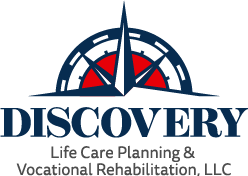Research Design & Stats
Introduction
This chapter will introduce you to the skills necessary to effectively read, dissect, interpret, and understand published research literature and practice guidelines. Basic research methodology for the life care planner will be presented and, by the end of this explanation, you will find you will be able to glean far more information out of each resource you tap into throughout the planning process. If you have traditionally been afraid of basic research or statistical terminology, relax. This chapter will take you step by step through what you need to know to make getting through the literature enjoyable, informative and rewarding for you and your patient.
Consider this statement: “ …realizing the practical benefits of a scientific approach to knowledge in rehabilitation counseling is contingent upon the ability of rehabilitation counselors to translate scientific principles and research-based findings on their practice” (Bellini & Rumrill, 1999). This applies equally to any health-related professional who finds it necessary to make effective use of research literature in their day to day practice.
Theory Development
The ultimate goal of science is to develop theories that establish relationships between traits or variables. Theory development is a goal and a tool of research relied upon to identify related variables, explain how they are related, and to determine why they are related. Theories enable the researcher to operate within a framework of knowledge while examining how well it explains and predicts empirical data. Theories summarize and order existing knowledge regarding a particular area of study.
What Research Is
A comprehensive review of the principles of research are beyond the scope of this chapter and most practitioners will have completed introductory coursework in basic research designs and concepts. The following points attempt to highlight some of the most important characteristics of scientific research:
*The aim of research is to contribute to the development of theories, general principles, and descriptions of a research problem
*Research is directed toward the solution of a problem (Best, 1970)
*Research is built upon the premise that knowledge is generated from factual investigation, experience, and objective observation
*Research is guided by carefully designed procedures governing sample selection, instrumentation, data collection, data analysis, and interpretation of results
*Research is based upon what is already “known” about the problem under investigation
*Research is based upon accurate, objective observation and description
*Research is based upon a chain of reasoning
*Research utilizes quantitative measurements, valid and reliable instruments, and psychometrics to record, calculate, and analyze data
*Research involves systematic definition of all related terminology, limitations are acknowledged and procedures are described in detail
*Research demands well-documented references, accurate data retrieval and record-keeping, and carefully considered conclusions
*The body of research within a field of study is self-correcting. Misinformation, ill-founded conclusions, and aberrant results are discredited and, over time, replaced by more accurate and precise knowledge.
*Scientific methodology controls and verifies the procedures and conclusions which can be reasonably asserted by the researcher.
*Scientific methods are used to test and encourage the proposal of alternative hypotheses.
What Research is Not
Researchers, and consumers of research, should be aware of the limitations of scientific study and should be able to recognize faulty methodology in the work of others.
*The purpose of research is not to “prove” hypotheses
*Research is not merely a reorganization or restatement of what has been published in the scientific literature regarding a specific topic (Best, 1970)
*Research is not simply information retrieval (Best, 1970)
*Research is not unsystematic, inconsistent, or spontaneous
*Research is not persuasive or aimed at “proving” personal convictions
*Research is not based entirely upon what is accepted by a culture or discipline as being “true”
*Research is not conducted clandestinely, but is open to public review and critique
One of the primary assumptions made by research scientists is that events in nature follow an ordered, lawful sequence which can be identified through experimentation. In other words, it is accepted that within a definite set of circumstances certain events may be expected to occur. What does this mean for life care planners?
Life care planners must turn to the research literature when making recommendations regarding the future needs of patients. Science is guided by the aim of identifying causal relationships through probability and theory, while life care planning involves analysis of patient-specific information to identify the most likely course of disability within reasonable rehabilitation probability as documented in the research literature.
